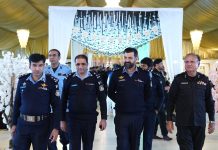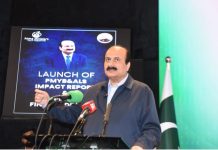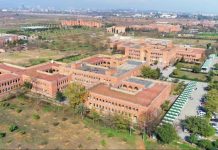Staff Report
ISLAMABAD: The Free and Fair Election Network (FAFEN) has urged the Parliament to immediately review the inefficacy of the First-Past-the-Post (FPTP) system.
The FAFEN has suggested the Parliament review the FPTP system to yield truly representative legislatures and governments.
It also suggested initiating wide-ranging discourse and negotiations on the adoption of the Proportional Representation (PR) system. The network stated that the PR system guarantees translation of more than 95 per cent of votes cast into representation.
The obsoleteness of FPTP is becoming more pronounced as the elections are becoming more competitive with polled votes splitting in triangular and at times quadrangular races as a higher number of political parties and independent candidates are vying for national and provincial assemblies’ general seats, it added.
After an analysis of official election results, the statistics clearly indicate that the FPTP system has failed to reflect the majority voice in true representation of people’s free will, whereas, the PR system is better designed to handle such multipronged electoral races, according to FAFEN.
“Now that the Parliament is set to discuss the Elections (Amendment) Bill, 2020, it should also take stock of issues of representation and strengthen the elected houses by choosing a system that truly and realistically represent the will of the people in shape of their political choices, making each vote not only count but to also translate into representation,” it read.
Earlier on May 11, the Free and Fair Election Network (FAFEN) had recommended the federal government conduct a referendum on the proportional representation (PR) system and use of electronic voting machines (EVMs).
The network had also recommended conducting a ‘broader public debate and political discourse on the much-needed electoral reforms’ and urged to conduct a referendum as permissible by the Constitution on such matters of public importance by taking the questions to the Pakistani people as a way to strengthen democracy.






